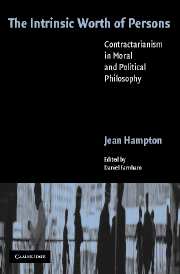Book contents
4 - Righting Wrongs: The Goal of Retribution
Published online by Cambridge University Press: 14 January 2010
Summary
There has been a steady rise in the popularity of retributivism over the last decade, which is surprising given its near death in the 1950s and 1960s. Yet critics of this approach to punishment are, in my view, right to charge that its supporters appeal to little more than intuition when they defend the idea that all and only wrongdoers “deserve” to suffer. In this chapter, I will develop what I call the “expressive” theory of retribution in order to explain and defend the idea of retributive desert. I have presented this theory in other places; here I want to restate the theory, taking into account critical reactions to the view that have appeared since I first began to develop it. Next, I shall argue, on the basis of this theory, that retribution is a fundamental and necessary component of any morally respectable system of punishment carried out by the state, but not the only component. Finally, I will argue that not all retributive responses are punitive responses, and I will give examples of non-punitive retribution.
The Point of Retribution
To understand retribution, we must link the point of the retributive response to the wrongfulness of the action. The failure of a well-known theory of retribution developed by Herbert Morris as an adequate account of the retributive response effectively makes this point.
- Type
- Chapter
- Information
- The Intrinsic Worth of PersonsContractarianism in Moral and Political Philosophy, pp. 108 - 150Publisher: Cambridge University PressPrint publication year: 2006



